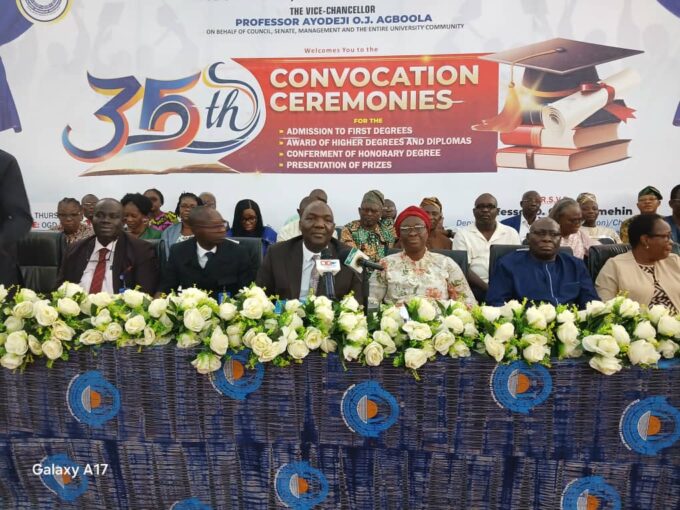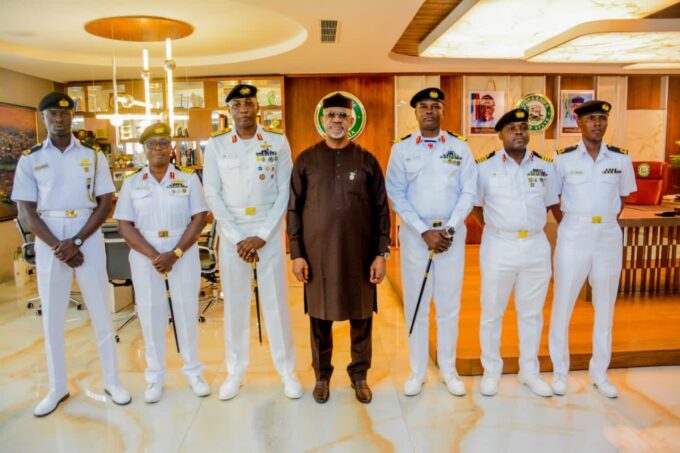Chinenyenwa Owuamalam
The global energy sector is agog as industry captains and stakeholders across the world converged at the NRG Park, Houston Texas, United States of America, for the Annual Offshore Technology Conference (OTC) which held from 5th – 8th May 2025. Commencing in 1969, the OTC is a renownedenergy forum convening energy professionals from around the world to connect, discuss and exchange ideas on trends in the energy sector, to advance scientific and technical knowledge for offshore resources and other environmental matters.
The OTC 2024 Post Event Report details a diverse mix of over 30,000 conferees from 107 countries with international attendance placed at 34%, thus highlighting the OTC’s expanding influence in the energy sector. The theme for the OTC 2025, “Waves of Innovation: Offshore Energy Excellence” is apt as it captures the essence of emerging frontiers and mirrors the relentless drive of the industry towardsground-breaking innovations to enhance efficiency, sustainability and technological distinction in the energy sector.
This year’s conference is particularly significant for Africa, where advanced offshore technologies could help unlock energy solutions for the continent. Against this backdrop, Africa was not left behind at the OTC 2025 as the Nigerian energy sectorconverged under the central theme: “Africa’s Energy Renaissance: Leveraging Innovation and Natural Gas for Sustainable Development”. Leading the Nigerian delegation was the Honourable Minister for Petroleum Resources (Oil), Sen. Heineken Lokpobiri, who declared the Nigerian Pavilion open on Day 1 of the Conference, ably supported by key industry stakeholders, policymakers, delegates, exhibitors and top government officials across Africa, including Ghana’s Minister of Energy and Green Transition, John Jinapor. Drawing from Nigeria’s extensive offshore experience with landmark projects like Bonga and Egina, the delegation was well-primed to lead continental discussions. At the forefront of his opening speech, Sen. Lokpobiri emphasized the importance of collaboration between energy sector players in Africa, noting that the African Petroleum Producers Organization (APPO) was established to bridge the collaboration gap between African oil producing countries and proffer workable solutions to matters arising within the African energy sector. The Honourable Minister also disclosed that the APPO in conjunction with the African Export-Import Bank (Afreximbank) created the Africa Energy Bank (AEB), a Pan-African financial institution currently subscribed to by 18 member states, designed as a responsive solution to funding constraints plaguing the African energy sector. Stating further, the Minister revealed that in addition to the initial $5 billion United States Dollars (USD) take-off grant, Afreximbank has pledged to allocate an additional $14 billion USD to AEB, to be derived from its existing investment exposures. The veracity of Sen. Lokpobiri’s submission that the AEB is set to take off in the current quarter (Q2 2025), is corroborated by the recent advertisement for the position of the President of the AEB on Afreximbank’s website, which stipulates that candidates for the role shall possess a minimum qualification of eighteen (18) years relevant experience in development finance, energy finance or investment banking, particularly within Africa. The choice of leadership will prove critical as the AEB positions itself to become Africa’s premier financier of next-generation offshore technologies, from Artificial Intelligence-powered subsea systems to modular floating Liquified Natural Gas (LNG) solutions that can accelerate energy access across Africa.
The existence of a financial institution created to address the critical financing needs of Africa’s energy sector and reduce energy poverty is an overdue welcome development, considering the reduced commitments of international financial institutions and investment funds to fossil fuel investments due to the global energy transition and climate change concerns.
Across Africa’s offshore sector especially in the Niger Delta region of Nigeria,repeated sabotage of pipeline and feeder systems thrives in oil rich communities, leading to loss of revenues and increased operating costs. It is anticipated that the AEB would support innovative deep-water exploration technologies which aim to curb offshore production disruption.
The AEB’s $19 billion USD fund if appropriated tactfully, could prompt a positive economic revolution by prioritizing projects which address Africa’s energy poverty, deliver affordable power to underserved populations and enhance commercial offshore evolution. AEB’s collaboration with AfricanNational Oil Companies and multinational oil and gas corporations willing to invest in Africa, wouldgreatly encourage sustainable development by endorsing local content initiatives and community investment programmes which will in turn secure a social license to operate for AEB.
For context on viable partnerships, ExxonMobil on 6th May 2025 through its Managing Director in Nigeria, Mr. Shane Harris, announced a planned investment of $1.5 billion USD to revitalize production in the Usan Deepwater oil field to be implemented between Q2 2025-2027.
Consequently, to influence profitable maximization of Africa’s abundant energy resources,the first step in the right direction for AEB would be to formulate a concise and demonstrable policy objective with clear-cut provisions on corporate governance in its bid to override bureaucratic inefficiencies and encourage optimal performance.
As Abuja, the Federal Capital Territory of Nigeria gears up to host the official headquarters of the newly created AEB, the pivotal role of the Bank as a stimulant for Africa’s economic progress will largely depend on the intentionality of its investments in both traditional and green energy.
The zeal to succeed for AEB’s incoming Management should therefore be fuelled by a proper alignment of implementable strategies developed to fast-track the continent towards fostering sustainable development, meeting global demands and steering Africa’s energy sector towards the path of economic progress and prosperity. In the words of the APPO Secretary General, His Excellency Dr. Omar Farouk Ibrahim, “…the era of lamentations is fast coming to an end as we [Africa] have decided to take our destiny into our own hands”.
Chinenyenwa Owuamalam is a distinguished Barrister and Solicitor of the Supreme Court of Nigeria with extensive background spanning fourteen years in the energy, legal, financial andgovernment sectors. An avid sustainability expert with central banking experience, she holds an LLM with Distinction in Oil and Gas Law from the University of Aberdeen, United Kingdom and is based in Abuja, Nigeria.


















Leave a comment